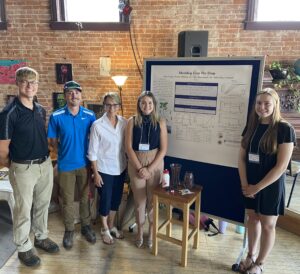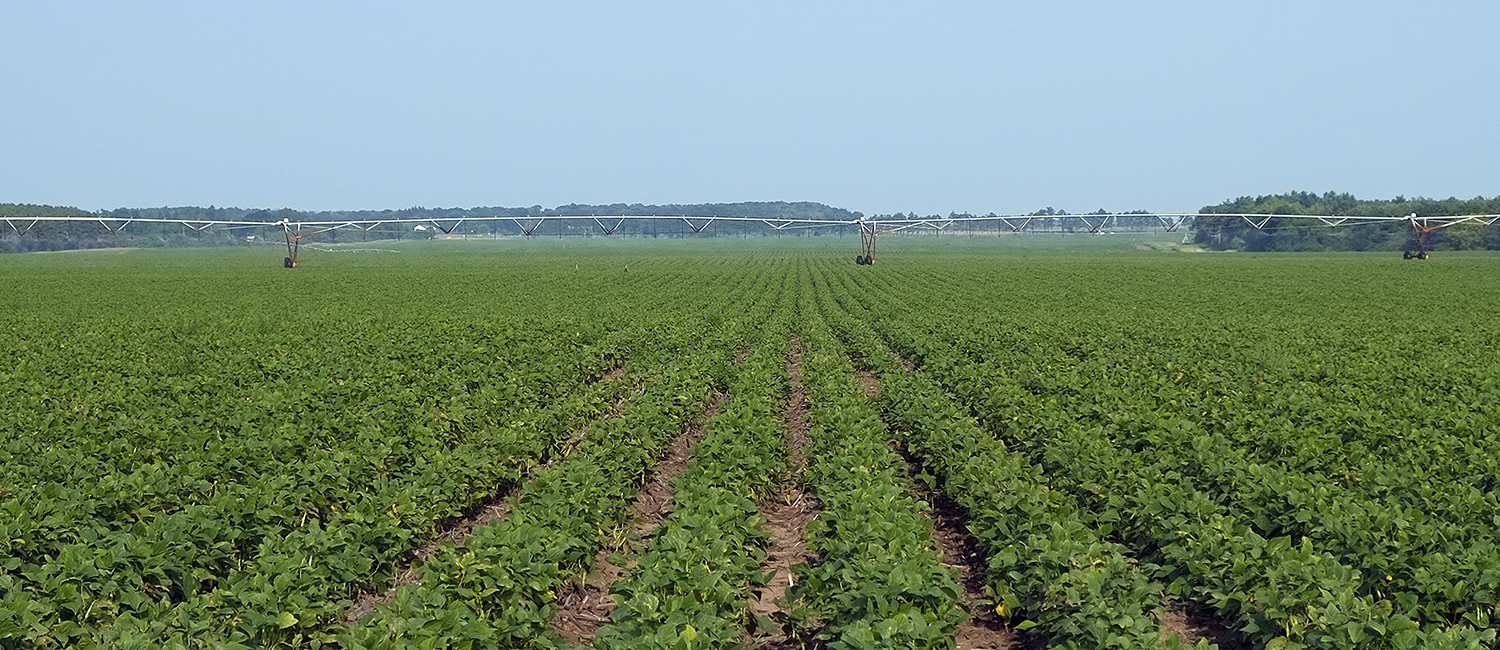With a grant from the Freshwater Collaborative of Wisconsin, three undergraduates worked on the “The Crop Per Drop in Sandy Soils Project,” a collaborative partnership between UW-Stout faculty and Chippewa Valley Bean. Faculty and students at UW-Stout are developing mathematical models to help Chippewa Valley Bean and its growers increase their crop yield and decrease their water usage. Read more at Predicting the Life Story of a Kidney Bean.
Here’s what they had to say about their experience.
Anna Hansen, applied mathematics and computer science sophomore from Eau Claire
Audrey Williams, applied mathematics and computer science sophomore from Necedah
Noah Royce, applied mathematics and applied physics senior from Antigo
Why did you participate in this project?
Hansen: I chose to participate in this research project because I wanted to explore different ways that I can use math and computer science skills to solve real-world problems.
Williams: I was looking for a summer internship and got an email that Dr. Wojciechowski and Dr. Skorczewski were looking for students to help them research kidney beans! I thought the opportunity seemed interesting and like something I had never done before.
Royce: At first, I was hesitant as I knew basically nothing about agriculture and plants, but I decided that I want to challenge myself by applying my mathematical skills to a topic I wasn’t comfortable with.
What was your role in the project?
Williams: Anna and I assisted Dr. Wojciechowski and Dr. Skorczewski in creating a differential equations-based mathematical model to predict how much water it takes to grow a 100 pounds of kidney beans.
Royce: I added functionality to the model, used computational methods to find parameter values, and I analyzed the model itself to see if it behaved the way we expected it to.
What skills did you learn?
Hansen: From this experience, I learned how to take multiple approaches to a problem as well as how to solve problems as they arise.
Williams: I gained experience in coding in Python, how to efficiently read research papers to understand concepts that are new to me, how to use math to solve real world problems and how to present results to people with less of a math background than me.
Royce: I learned a lot of “hard” math skills, including how to use Python to search for parameters based on given data, and I have new tools for analyzing particularly tough equations. As far as “soft” math skills, I was given a ton of feedback on how to coherently write about mathematics and how to write a compelling abstract. I also got to see firsthand how much collaboration takes place in a research project, which was incredibly exciting and a lot of fun. The most important thing I learned, though, was no matter how good of a mathematician you are, sometimes your ideas just don’t work, and you need to reorient and find a new direction. It’s hard at first, but it gets easier when you realize that’s still progress.
What was your favorite part about conducting this research?

Hansen: My favorite part of this research project was when we presented to Chippewa Valley Bean at the end of the summer as well as at the community forum [at the Raw Deal].
Williams: My favorite part of conducting this research was learning that math research is not just sitting at a table doing math every day. Some days we were out in a kidney bean field talking to farmers with decades of experience farming kidney beans. Other days we were at a farming equipment conference called Farm Tech Days in Marshfield, Wisconsin. If we didn’t have experience in a specific area, we would go to professors in other departments at Stout. It really surprised me how much interdisciplinary work was involved!
How will this experience help you attain your career goals?
Hansen: I am not sure what type of job I want to have after graduation. However, working with two experienced mathematicians all summer helped me develop a sense of what types of jobs I would be able to get after graduation, or what opportunities grad school has to offer.
Williams: I hope to go into data analytics after graduation. This experience has helped me by teaching me how to push through the difficulties of learning new skills. Even if I don’t end up using the specific tools we used this summer, I have a newfound confidence in my ability to broaden my skills!
Royce: I hope to get my PhD in applied mathematics. My passions are research and teaching, so the most obvious career would be a professor. This project made me a far better researcher and a better communicator in mathematics, so this is a fantastic first step toward my goals.

